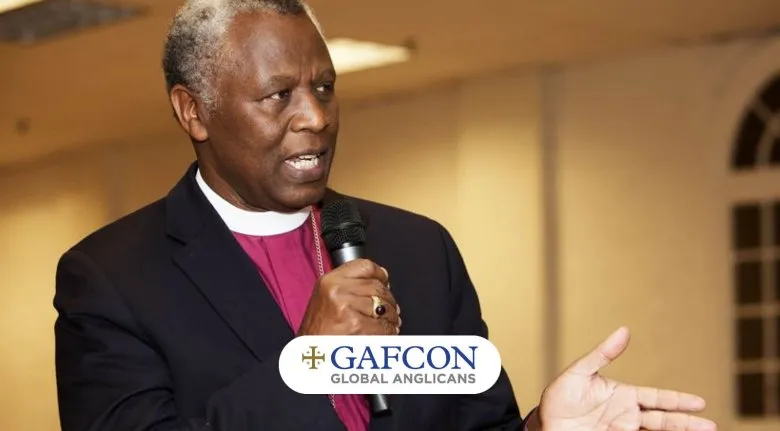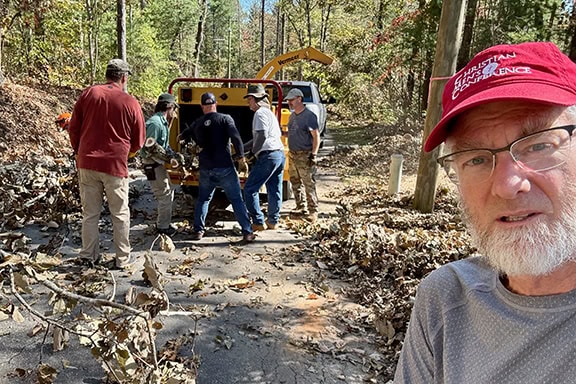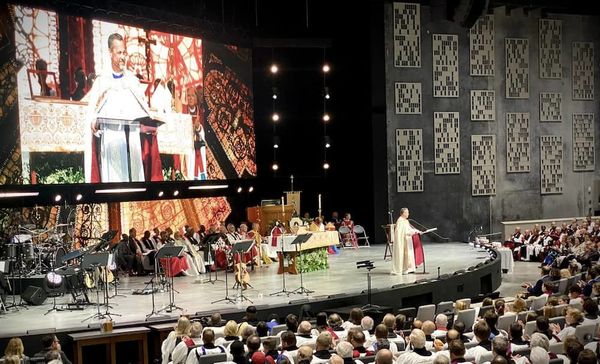What does it mean to grow up into adolescence? It means walking out into the world, away from our parents’ arms, tottering on alone. With increased independence comes greater risk, however; greater mistakes but greater successes. Each step marks a new phase in the growth of our identity. As the Anglican Church in North America enters her second decade, she will cross through her teenage years into adulthood, all the while strengthening her identity after having fought for the first decade to claim it. Adolescents are more able to understand who they are despite their continuing struggles and to integrate conflict into their sense of self. These are the years the province walks confidently towards.
Ten years ago, we were separated from caretakers no longer able to bring us the care and discipline we needed; but the Lord, in his mercy, provided new shepherds to carry us forward until we could walk on our own. In those first years, we reconnected with the wisdom of our grandparents and great-grandparents, whose legacy many of us had lost touch with, and we came to find that it was not we, in our infancy, who broke away, but many of our spiritual parents who abandoned us. Having reconnected with our heritage, we found ourselves firmly settled once again in a global family. We were given the freedom to grow, flourish, learn, take our first steps, wander, explore, come home, cry, laugh, and find our voice. This was the legacy of our first decade. Every mistake was met with a success born out of the helping hands of God extended by those who came to see us through our childhood.
We have finally found our footing. Now, having strengthened our identity, and having found out who we are, we will embrace what we were created to do. The adolescence that we step into is an opportunity to revitalize an orthodox Anglicanism built on a foundation of strength developed over our first ten years.
As we gathered for Assembly, this growing maturity was evident. The release of our Book of Common Prayer reflected a move from toddling to walking as we hit our stride in the Anglican tradition of prayer and worship. The book speaks to our ability to launch out and pray with confidence in the company of our forefathers. It says to the worldwide Church, “We are Anglican,” and it enshrines our identity by common prayer expressed in common worship through the centuries. While there will still be bumps in our adolescent years, they will be experienced with the backbone of a maturing ecclesiology, or understanding of Church leadership and structure, and a refined passion for mission.
The Assembly speakers, including keynote speaker Ravi Zacharias, further impressed on us the reality that we have grown not just in ourselves but also in our relationship with others. We grew in the language we would use to communicate our growing identity, fostering relationships with those who call us “friends” and support our call for dependence on God’s Word and our need for community outside the home. Likewise, the Assembly workshops presented the ins and outs of daily work in the Anglican Church in North America, the little ways we have labored to add our small pieces of the puzzle to a larger whole. They were the expression of ministries, projects, and deep theological thought that came together to help inform the whole body and launch her into the next phase of life.
It is with gratitude that we step forward into adolescence. We walk with gratitude to our forefathers and to our current brothers and sisters who have labored so hard to grow us up and get us out the door, to Archbishop Bob Duncan and others who led the way, and to Archbishop Foley Beach and many more who now keep us moving forward. Growing pains are never easy. We have suffered through many and will doubtless suffer through many more. At Assembly this year, however, we saw the fruit of that labor: over one thousand souls who have benefited from the life we lived together as the Anglican Church in North America and who will continue to draw from her life ahead.
Deacon Francis Capitanio is the Communications Director for the Anglican Diocese of New England.
-scaled.jpg)





